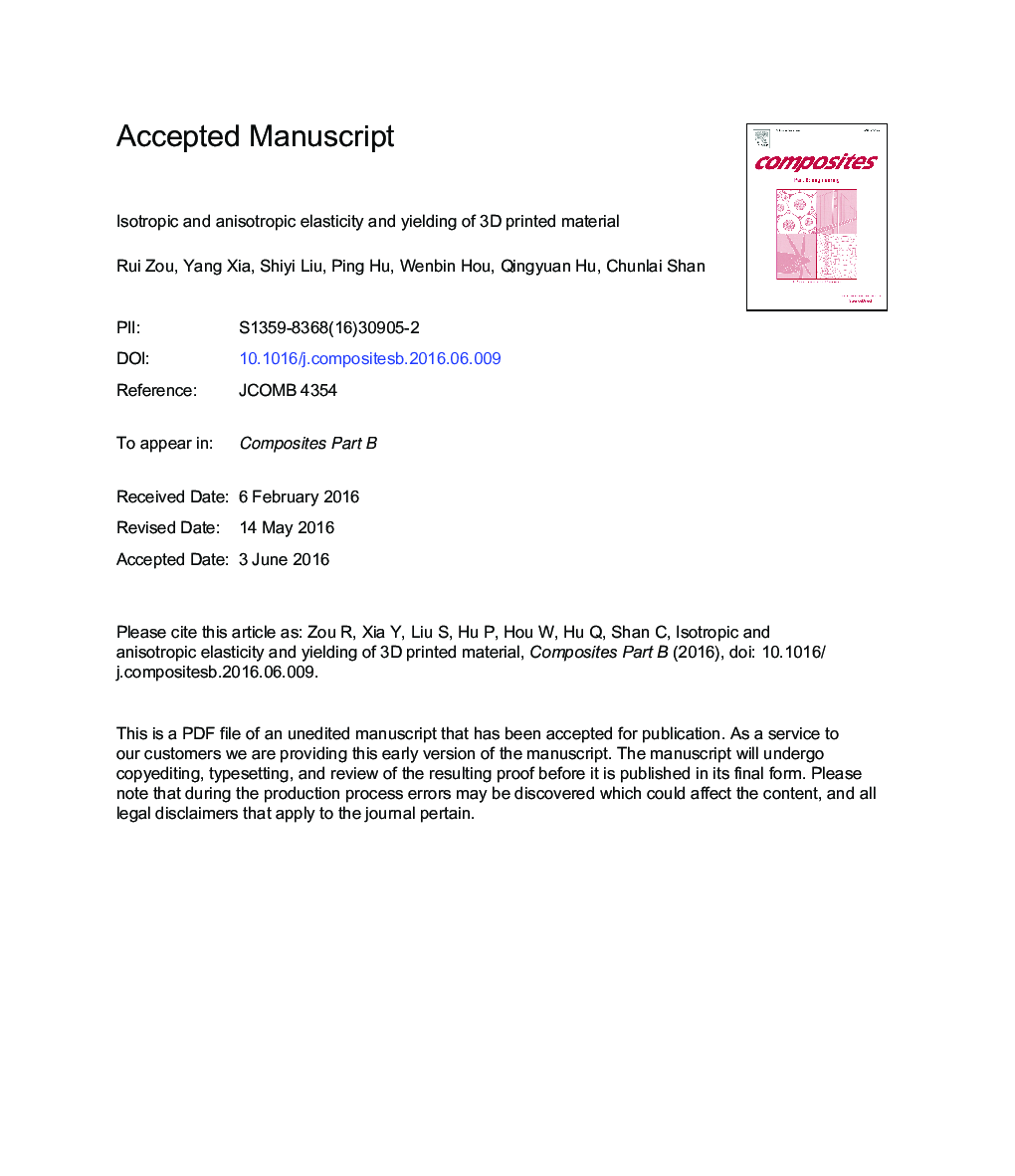| Article ID | Journal | Published Year | Pages | File Type |
|---|---|---|---|---|
| 7212514 | Composites Part B: Engineering | 2016 | 17 Pages |
Abstract
3D printing provides an innovative manufacturing method for composite materials. The mechanical property is vital for understanding the performance of 3D printed material and needs to be further studied. In this paper, the elasticity and yielding performance of acrylonitrile butadiene styrene (ABS) material created by 3D printing is investigated and the effect of printing orientation on mechanical property is quantitatively evaluated with experiments. Due to the layer by layer process procedure, 3D printed materials behave with anisotropic property. According to this characteristic, a transversely isotropic model is put forward in form of constitutive equations and is compared with isotropic model. Considering the influence of printing orientation, isotropic and anisotropic elastic and yielding model are established. The printed materials with different printing orientations are applied in uniaxial tensile tests. The material parameters, meaning the Young's modulus, Possion's ratio and yielding stress are determined by experiments. The results show that the printed ABS material has the Young's modules as 2400Â MPa, Poisson's ratio as 0.37 and yielding stress as 26.84Â MPa as isotropic material when the influence of printing orientation is neglected. Parameters for anisotropic model are also given and the model is recommended if the better precision concerning printing orientations is required. The obtained material parameters can be used in the mechanical simulation of 3D printed objects. The established isotropic and anisotropic models are basic findings to describe mechanical property of printed materials and can be expanded to other materials produced by 3D printing.
Keywords
Related Topics
Physical Sciences and Engineering
Engineering
Engineering (General)
Authors
Rui Zou, Yang Xia, Shiyi Liu, Ping Hu, Wenbin Hou, Qingyuan Hu, Chunlai Shan,
